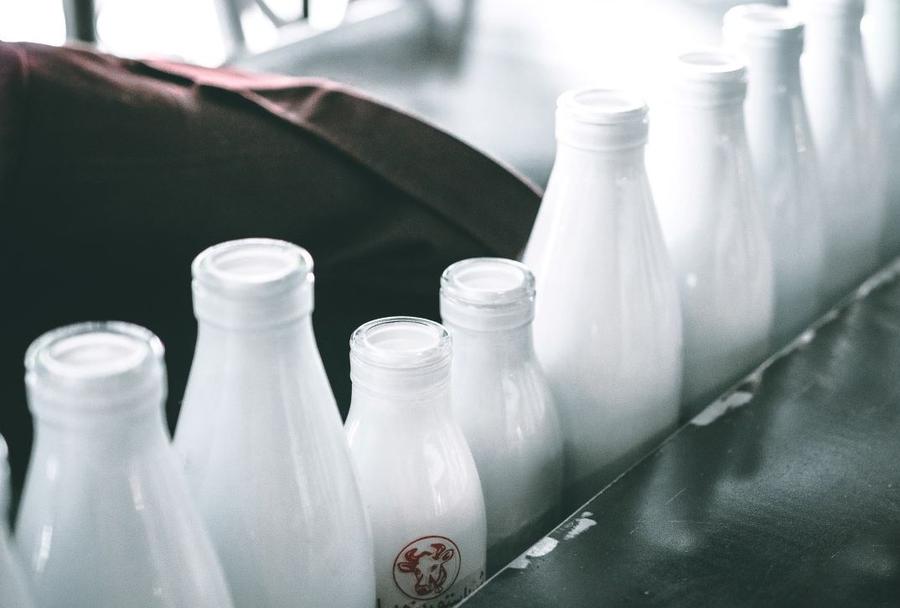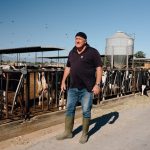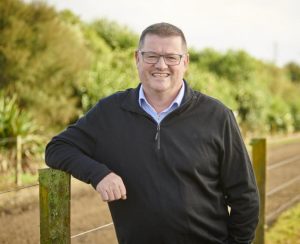
Like many Maasai mothers in Emali, all she wanted was a cow to produce milk for her children.

But now, following training and support through ChildFund, not only does Josephine have a reliable milk supply for her children, she has a reliable income source from selling milk, she is part of the Samli Dairy Cooperative that gives her protection as a vendor, and perhaps most importantly, she now has peace of mind that there is enough money to send her children to school.
“This project has totally transformed our lives,” says Josephine.
For Emali women, milk is a tool for economic independence. Women own milk in the Maasai culture while men own the livestock.
Josephine’s home in Emali is surrounded by pasture for her cows, and it’s a rare sight in rural Kenya where overgrazing is common place.

Through the ChildFund training, Josephine has learned about pasture management, including the importance of not over grazing and also the importance of fencing.
“We were taught that a cow’s health is your wealth and that really stuck with me,” Josephine says.
“It was like a dream come true. I saw all my financial problems vanishing right before my eyes!”
The Samli Dairy Cooperative is giving farmers like Josephine a consistent and reliable market for milk and she is one of more than 800 farmers benefiting from the collective.
Prior to the formation of the Samli Dairy Cooperative, farmers like Josephine had to depend on unreliable milk vendors who would pay low milk prices and sometime fail to collect their milk. Being in the cooperative also gave her peace of mind during her recent pregnancy.
“I couldn’t imagine how I could have handled the brokers when I was expectant, they take advantage of women, old and pregnant, who cannot run after them for their milk money,” she says.
“The cooperative came at the opportune time allowing me to rest and wait for my payment through mobile money at the end of each month.”
Josephine is also registered as a supplier for the Oltinka Milk Collection Centre, one of two fully operating milk collection centres in Emali. Additionally there are three fully operating milk collection points.
Currently she is milking one cow with an average of 5 kilograms of milk collected per day. About 3kg is sold and about 2kg is consumed in her own household. A second cow is expected soon to start producing milk for her business too.
Previously when milk was sold on cash basis only, she didn’t have any savings. The little money she received would go towards buying the household basics items in small quantities and it was not economical for her family.

Josephine has been able to join three Voluntary Savings and Loan Associations (VSLAs) groups which distribute resources in rural Kenya, and she is now saving money. She also is eligible to take a loan that she can service through her milk business.
The future looks bright for Josephine and her family. Now she has a reliable income stream, improving milk production is her next focus.
ChildFund’s Agriculture, Dairy and Economic Development in Emali
In Emali, communities are vulnerable to drought which can destroy their crops and leave families without food and income.
The ChildFund dairy farming project that has been evolving in Kenya for nearly four years with funds from the New Zealand’s Ministry of Foreign Affairs and Trade (MFAT) and Kiwi supporters. The project has created around 5000 employment opportunities in the area.
Farming experts from New Zealand have worked with ChildFund’s local partner, the Emali Dedicated Children’s Agency, local officials and farmers from the Maasai and Kamba tribes around Emali since 2015.
Agricultural initiatives they have helped implement include introducing a new more drought resistant fodder and new cattle varieties; extensive training in animal care and basic vet skills; stock husbandry; farm and business management training; and a youth vet club programme.
There are now three fully operating milk collection points and two fully operating milk collection centres. The Masimba plant has a 5,000 litre cooling tank, milk testing equipment and an office for managing the intake of raw milk from farmers and ensuring these farmers get paid on time for their milk.
As the farming area in Emali is vast, ChildFund established five facilities so that farmers can deliver the raw milk quickly and efficiently. If a farmer delivers to a nearby milk collection point, it will then be quickly transferred to one of the milk collection centres to be stored in the industrial-sized cooling tank.
Culturally, owning cattle is very significant for Maasai farmers. Men own the cows and women own the milk, as the women do the milking and feed it to their children. By developing a milk business where farmers can use their existing livestock and milk supply to earn a regular income, families can now provide for their children (even during drought).
Further reading about the ChildFund Agriculture, Dairy and Economic Development project.
Kiwi farming ingenuity opens doors in Kenya through ChildFund and MFAT partnership
Update of our Agriculture, Dairy and Economic Development project in Emali, Kenya
ChildFund launches a new milk processing plant in rural Kenya, in partnership with MFAT
Your donations to this project are match funded, meaning every $1 you give, the project will receive $3! If you would like to support our ongoing work in Emali, Kenya and the ADED project, please donate now.

























